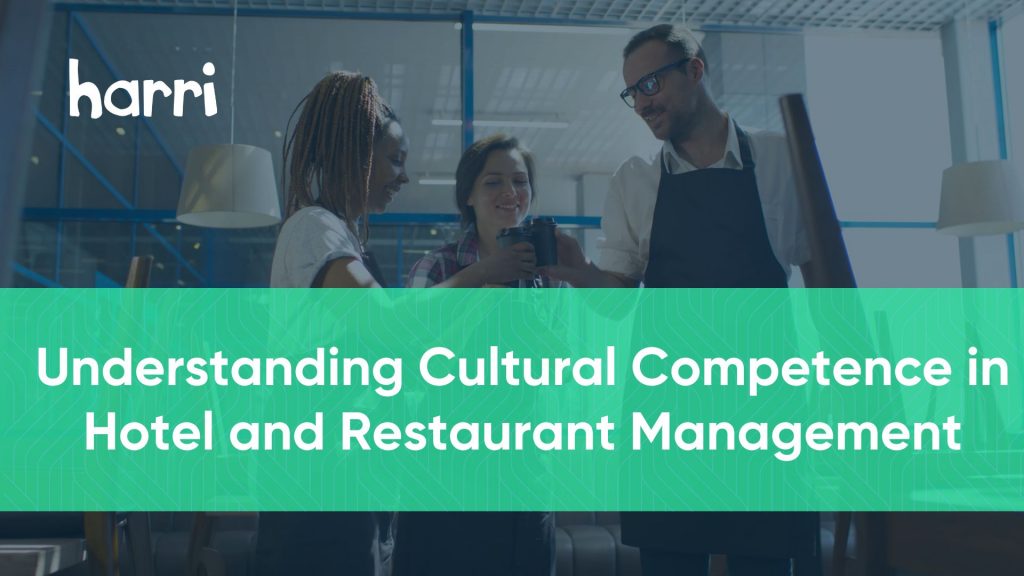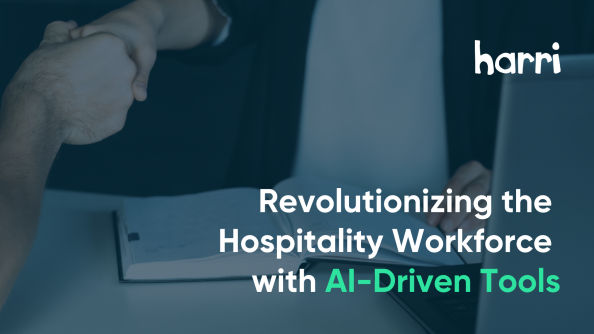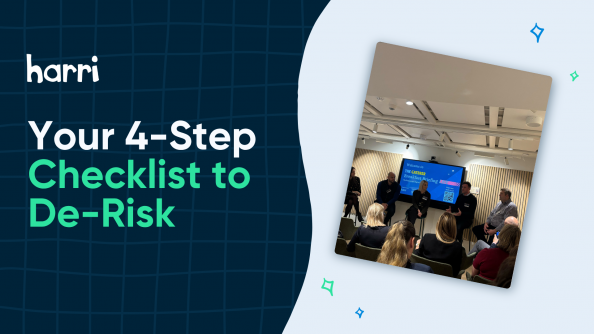Understanding Cultural Competence in Hotel and Restaurant Management

- By Harri Insider Team | July 9, 2024
The hospitality landscape is increasingly diverse and globalized and cultural competence is more important than ever. To deliver exceptional service and improve staff interactions, hotel and restaurant management must emphasize this key concept. Here’s what industry leaders need to know about cultural competence in the workplace.
What is Cultural Competence in Hospitality Management?
Cultural competence in hospitality involves understanding, appreciating, and effectively interacting with people from diverse cultural backgrounds. This crucial skill set includes a deep knowledge of various cultural practices, beliefs, values, and customs. More importantly, it requires adapting and showing respect for these differences, ensuring that all interactions are conducted with sensitivity and understanding. This not only enhances guest experiences but also fosters a respectful and inclusive workplace environment.
How Important is Cultural Competence?
Cultural competence is important because it promotes inclusivity, understanding, and respect for diversity. It allows individuals and organizations to effectively communicate and interact with people from different cultural backgrounds, reducing misunderstandings, conflicts, and discrimination. It also helps to build positive relationships, enhance teamwork, and improve customer satisfaction. Research shows that companies with inclusive cultures are twice as likely to meet or exceed financial targets, and three times as likely to be high-performing.
However, there is still work to be done. In one UK study, only 61% of minority populations said they agreed with the statement: ‘People with backgrounds like mine are able to succeed here’. When you consider that 1/3 of black employees in the UK feel their careers have been hampered by discrimination, you can see why cultural competence moves to the top of many companies’ list of key initiatives.
In the hospitality industry, cultural competence is particularly crucial. The industry caters to a diverse range of customers from various cultural backgrounds. By understanding and respecting cultural differences, hospitality professionals can provide personalized and exceptional service to all guests. They can tailor their offerings, communication styles, and services to meet the specific needs and preferences of different cultural groups. This leads to:
- Enhanced guest experiences
- Increased customer loyalty
- A positive establishment reputation
- A wider customer base
- The ability to attract new market segments

Strategies for Building Cultural Competence in the Workplace
It’s essential to enhance cultural awareness and sensitivity among staff. Here are some tactics to help you create cultural competence in the hospitality industry. A multifaceted approach made from several different approaches is the best way to make meaningful change. Try exploring these ideas:
Cultural Awareness Training: Provide comprehensive training programs that educate employees about different cultures, customs, and communication styles. This training should focus on developing empathy, understanding stereotypes, and promoting cultural sensitivity.
Language Training: Offer language training programs or resources to employees to help them communicate more effectively with guests who speak different languages. This can include basic phrases and greetings in different languages or utilizing translation tools.
Cross-Cultural Communication Skills: Train employees on effective cross-cultural communication techniques, such as active listening, non-verbal communication, and adapting communication styles to different cultural norms.
Cultural Immersion Experiences: Organize cultural immersion experiences for employees, such as cultural events. This allows employees to gain first-hand exposure to different traditions and practices.
Inclusive Policies: Implement inclusive policies that promote diversity and respect for all employees and guests. This can include policies against discrimination, harassment, and bias, as well as providing accommodations for religious practices or dietary restrictions.
Diversity in Staff: Foster diversity in your organization by actively recruiting and hiring employees from different cultural backgrounds. This creates a more inclusive environment and allows for a wider range of perspectives and experiences.
Feedback and Evaluation: Establish mechanisms for collecting feedback from guests about their cultural experiences and satisfaction. Regularly evaluate the effectiveness of cultural competence initiatives and make adjustments as needed.
Partnerships and Community Engagement: Collaborate with local cultural organizations or community groups to promote cultural exchange and understanding. This can include hosting cultural events, partnering with local businesses, or participating in community initiatives.

Use Harri to Super-Charge Your Culture
Harri is an all-in-one capital management platform created specifically for the hospitality sector. Designed with engagement and workforce retention in mind, it offers the perfect solution for supporting the efforts that lead to real cultural competence in the workplace.
Streamline Engagement with Harri’s Integrated Management Platform
Rather than cobbling together tools that can help with engagement, Harri presents everything managers need in one location. The user-friendly platform allows you to increase employee communication – especially around new policies – and give everyone a chance to ask questions and get responses in real-time. It’s the perfect tool for supporting new inclusion policies that you might be rolling out, as well as collecting real employee data that can inform any new programs you might create.
Enhancing Employee Engagement and Inclusion
Employees can use a consolidated app for measuring sentiment, gathering feedback, checking schedules, and swapping shifts. Gaining such feedback is crucial for understanding how your staff feels, and making them feel supported, which improves the overall culture. Harri is especially helpful for supporting new hires in their first 90 days, making sure everyone is properly onboarded with the right training, and checking in to see how things are going. This can be especially powerful in a diverse workforce, as you want to make sure everyone feels included and empowered. As you develop new training programs around cultural competence, use Harri to roll out communications, schedule events, and check in with employees – all from one convenient place.





















